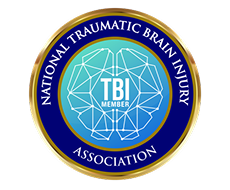Neurolaw: The Brain on Trial
NEUROLAW, AN EMERGING INTERDISCIPLINARY FIELD, lies at the intersection of neuroscience and the law. It seeks to understand how the brain’s functions and malfunctions can influence legal outcomes, particularly in criminal and civil cases. This field of study addresses critical questions about human behavior, accountability and the consequences of neurological impairments, including those caused by traumatic brain injury (TBI). TBIs, which often result from accidents or violence, have been linked to significant changes in behavior, decision-making and impulse control. As our understanding of how the brain works deepens, neurolaw is redefining how courts approach cases involving individuals with brain injuries, including issues of criminal responsibility and the adequacy of punishment.
In this story, we will explore neurolaw, with a focus on how TBI influences legal proceedings, and how this evolving field is reshaping the relationship between brain science and the law.
WHAT IS NEUROLAW?
Neurolaw is the study of the relationship between neuroscience (the science of the brain) and law (the system of rules governing behavior). As science continues to unlock the mysteries of the brain, neurolaw explores how these discoveries should be applied in legal contexts. The field raises questions like: Can a person be held criminally responsible for actions that are influenced by an injured brain? How can courts evaluate the mental state of a defendant with a brain injury? What role does the brain’s capacity for change (neuroplasticity) play in sentencing and rehabilitation?
In a typical criminal case, the law traditionally assumes that an individual has control over their actions and can be held accountable for their choices. However, as science shows, brain injuries or disorders can sometimes limit a person’s ability to make decisions, control impulses or understand the consequences of their actions. This complicates the application of traditional legal principles such as intent and mens rea (the mental state needed to commit a crime).
Neurolaw seeks to understand the balance between responsibility and brain-based impairments, especially when conditions like TBI alter cognitive function and behavior.

THE ROLE OF TRAUMATIC BRAIN INJURY IN NEUROLAW
Traumatic brain injury (TBI) occurs when an external force causes damage to the brain. This injury can result from various incidents, such as car accidents, falls, physical assaults, or sports-related injuries. TBIs vary in severity, ranging from mild concussions to life-threatening injuries that can cause permanent damage to brain function.
The effects of TBI are wide-ranging and can affect various aspects of a person’s cognitive abilities, including memory, attention, decision-making and emotional regulation. One of the most significant consequences of TBI is its potential impact on a person’s behavior. Damage to areas of the brain responsible for impulse control, such as the prefrontal cortex, can lead to increased aggression, poor judgment and difficulty controlling emotional responses. In some cases, this can contribute to criminal behavior or actions that are seen as erratic and outside a person’s control.
Neurolaw plays a crucial role in determining how TBI should be considered in the context of criminal responsibility. Legal professionals must assess whether a defendant’s TBI affected their ability to understand the nature of their actions or control their behavior at the time of the offense.
TBI AND CRIMINAL RESPONSIBILITY: THE IMPACT ON LEGAL DECISIONS
In criminal law, the question of whether a defendant was capable of forming intent at the time of the crime is central to determining guilt. This is where the science of neurolaw intersects with TBI. When a defendant has sustained a traumatic brain injury, their ability to plan, control impulses, or even recognize right from wrong may be impaired. In some cases, an individual with a TBI may act impulsively without fully understanding the consequences of their actions, raising important questions about legal responsibility.
For example, consider a case where a defendant with a history of TBI commits an act of violence. If brain scans or expert testimony reveal that the injury has caused significant damage to areas of the brain responsible for impulse control, the defendant’s ability to control their actions at the time of the offense could be in question. Legal experts might argue that the individual should not be held fully accountable for their behavior because the brain injury impaired their judgment.
One prominent case illustrating the role of TBI in criminal law is that of Ernest Willis, a man with a history of brain injuries who was involved in violent behavior. Expert testimony suggested that his brain injuries, which affected his ability to regulate emotions and impulses, contributed to his actions. While Willis was still held accountable for his behavior, the understanding of his brain injury influenced how the case was handled, including the nature of his sentencing and the focus on treatment rather than purely punitive measures.
The central question in cases like these is whether the brain injury can be shown to have impaired the individual’s capacity to form the mental state (mens rea) necessary to commit the crime. If TBI is determined to have compromised this ability, it could lead to different legal outcomes, including verdicts of diminished responsibility, insanity, or not guilty by reason of mental illness.
THE IMPACT OF TBI ON SENTENCING AND REHABILITATION
Neurolaw also plays a critical role in determining appropriate sentences for those convicted of crimes when a brain injury is involved. Traditionally, criminal justice focuses on punishment and deterrence, but the growing understanding of the brain’s role in behavior is pushing for a greater emphasis on rehabilitation and treatment.
For individuals with a history of TBI, courts may consider whether the injury contributed to their criminal behavior and what treatment options might be available. In some cases, the legal system may take the brain injury into account during sentencing, with a focus on providing medical treatment, counseling and rehabilitation rather than long-term incarceration.
For instance, a defendant whose TBI has led to significant cognitive impairment or emotional instability may be better served by rehabilitation programs designed to address the underlying neurological issue. This approach could involve therapies aimed at improving impulse control, anger management and cognitive function, helping the defendant reintegrate into society in a more productive and healthy way.
The concept of neuroplasticity, the brain’s ability to reorganize itself and form new neural connections, plays a key role here. With appropriate therapy and rehabilitation, individuals with TBI may regain some of their lost functions, potentially reducing the likelihood of future criminal behavior. This presents a compelling argument for shifting the focus from punitive measures to rehabilitation and therapeutic interventions, particularly for those whose actions were influenced by neurological factors beyond their control.
MENTAL HEALTH AND TBI: LEGAL CONSIDERATIONS
In addition to the physical consequences of TBI, the injury often leads to significant mental health challenges. Individuals who suffer from brain injuries frequently experience mood disorders, depression, anxiety and post-traumatic stress disorder (PTSD), all of which can complicate their behavior. These mental health issues, compounded by neurological damage, may affect their ability to function normally in society.
In the context of neurolaw, mental health and brain injuries are interconnected. For individuals with both TBI and mental health disorders, the law must grapple with the question of how best to assess their criminal responsibility. Are these individuals fully culpable for crimes they committed while under the influence of neurological dysfunction or mental health crises? Should the court take into account the extent to which their TBI contributed to their actions?
In some cases, defendants with TBI may be able to present a dual defense: that their actions were influenced both by brain injury and mental illness. Expert testimony from neuropsychologists and psychiatrists can help establish a connection between the injury and the psychological consequences that followed, providing the court with a more comprehensive understanding of the individual’s state of mind at the time of the offense.
ETHICAL AND MORAL QUESTIONS IN NEUROLAW
The increasing integration of TBI and neuroscience into the legal system also raises ethical and moral questions about free will, responsibility and justice. If an individual’s behavior is largely determined by neurological factors, to what extent can they be held morally and legally accountable for their actions? Does the knowledge that someone has a brain injury excuse their behavior, or does it merely explain it?
These questions challenge long-standing principles in criminal law, which assume that people are fully responsible for their actions unless they can demonstrate insanity or incapacity. The complexity of the brain, particularly in cases of TBI, complicates this straightforward view and calls for a more nuanced approach to justice.
While some argue that brain injuries should be a valid factor in reducing punishment or offering treatment, others fear that allowing TBI as a defense could lead to individuals evading full accountability for their actions. These concerns underscore the ongoing debate within neurolaw about the balance between understanding brain dysfunction and maintaining a just and fair legal system.
THE FUTURE OF NEUROLAW AND TBI
As our understanding of the brain continues to grow, the field of neurolaw will likely expand, offering new ways of considering TBI and other neurological impairments in legal contexts. The intersection of law and neuroscience promises to reshape how the legal system addresses issues of responsibility, accountability and punishment.
In the future, it is likely that TBI and other brain-related conditions will play an even greater role in legal cases. More advanced neuroimaging technologies, such as diffusion tensor imaging (DTI) and electroencephalograms (EEGs), will provide deeper insights into brain function and injury, allowing courts to more accurately assess the role of TBI in criminal behavior.
Ultimately, neurolaw is challenging us to rethink the relationship between brain function and legal responsibility. As we continue to explore how TBI and other brain injuries affect behavior, it is likely that we will find more ways to ensure that justice is both compassionate and informed by the latest scientific understanding of the human brain.
Contribute to the TBI Times





